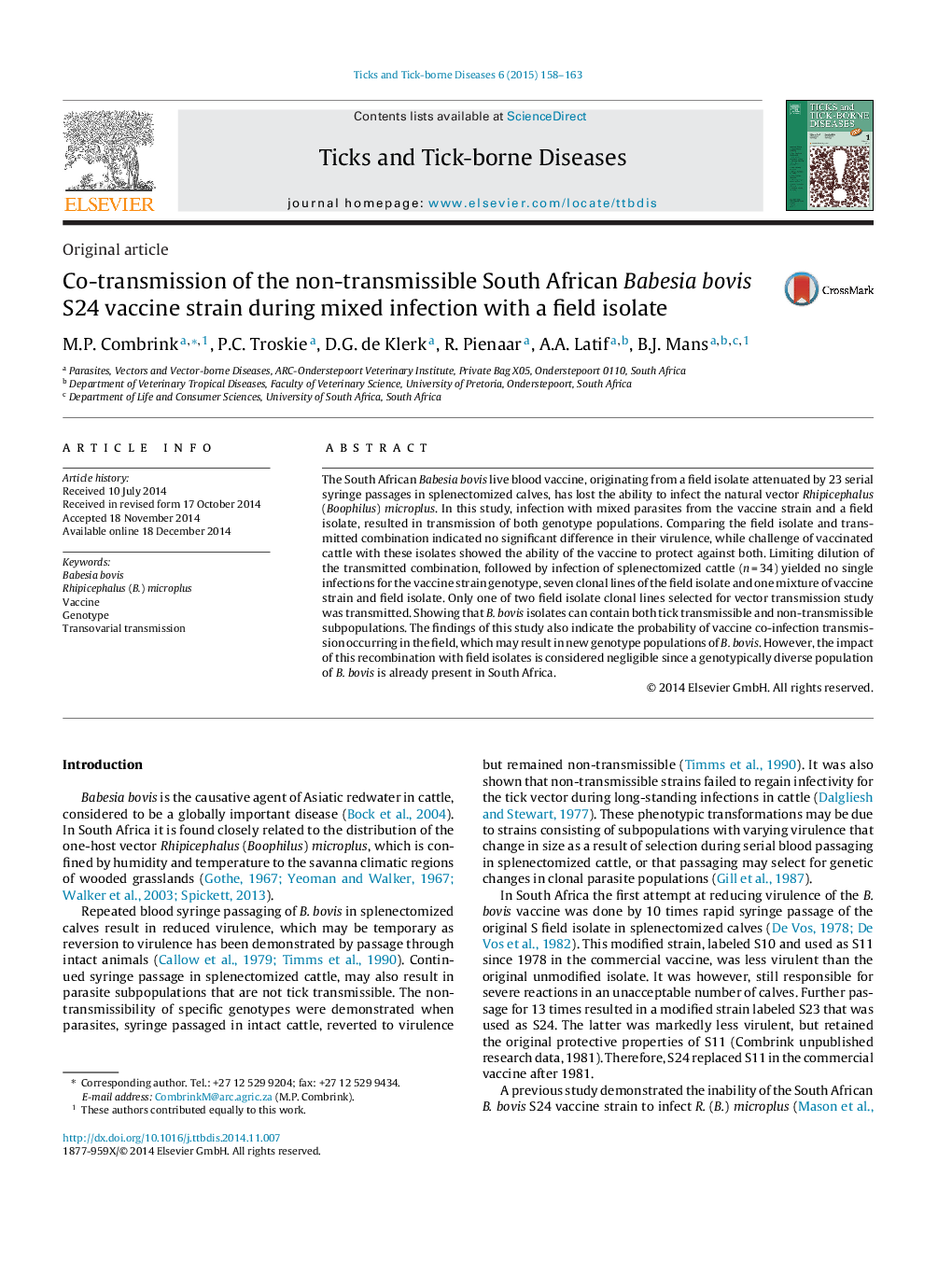| Article ID | Journal | Published Year | Pages | File Type |
|---|---|---|---|---|
| 5807088 | Ticks and Tick-borne Diseases | 2015 | 6 Pages |
The South African Babesia bovis live blood vaccine, originating from a field isolate attenuated by 23 serial syringe passages in splenectomized calves, has lost the ability to infect the natural vector Rhipicephalus (Boophilus) microplus. In this study, infection with mixed parasites from the vaccine strain and a field isolate, resulted in transmission of both genotype populations. Comparing the field isolate and transmitted combination indicated no significant difference in their virulence, while challenge of vaccinated cattle with these isolates showed the ability of the vaccine to protect against both. Limiting dilution of the transmitted combination, followed by infection of splenectomized cattle (n = 34) yielded no single infections for the vaccine strain genotype, seven clonal lines of the field isolate and one mixture of vaccine strain and field isolate. Only one of two field isolate clonal lines selected for vector transmission study was transmitted. Showing that B. bovis isolates can contain both tick transmissible and non-transmissible subpopulations. The findings of this study also indicate the probability of vaccine co-infection transmission occurring in the field, which may result in new genotype populations of B. bovis. However, the impact of this recombination with field isolates is considered negligible since a genotypically diverse population of B. bovis is already present in South Africa.
